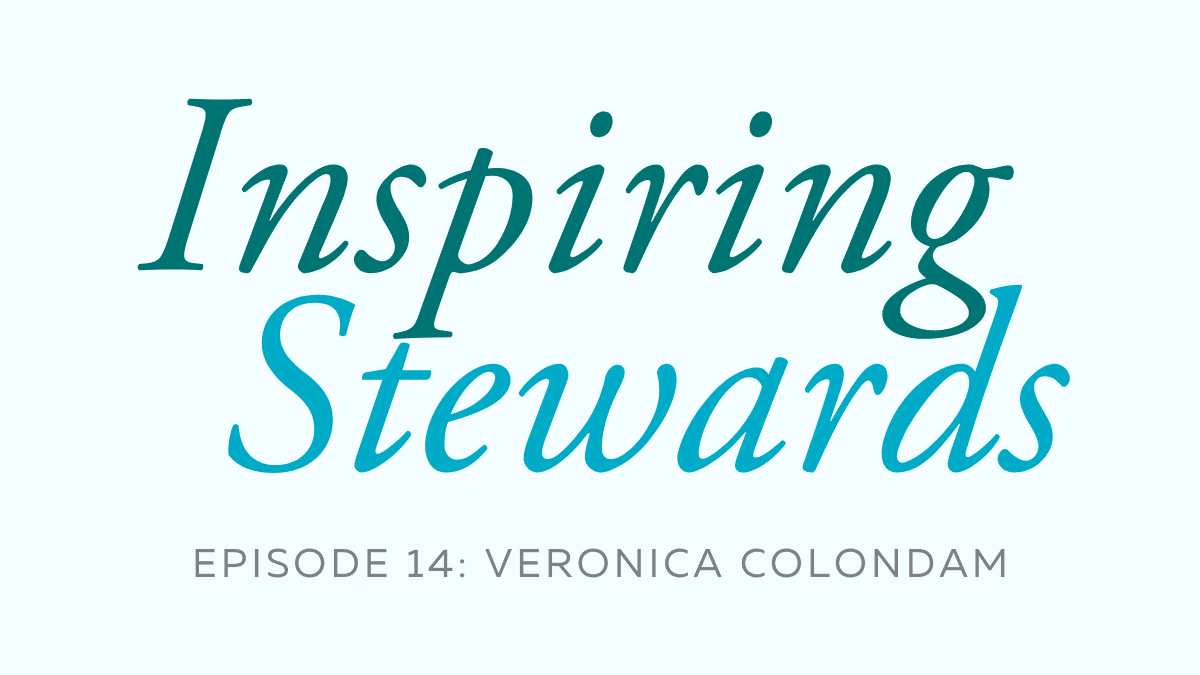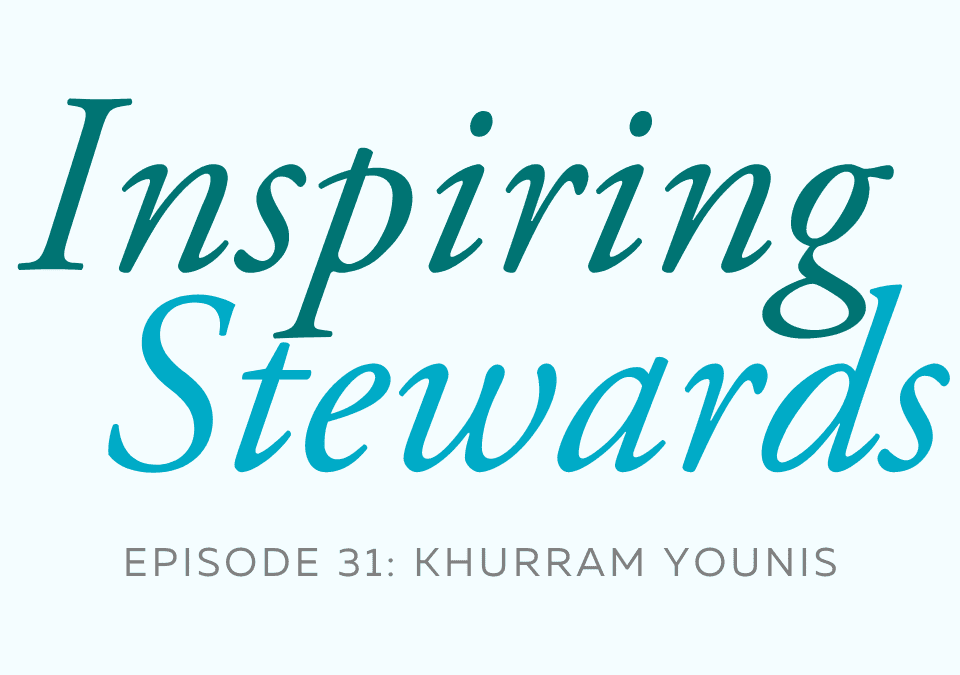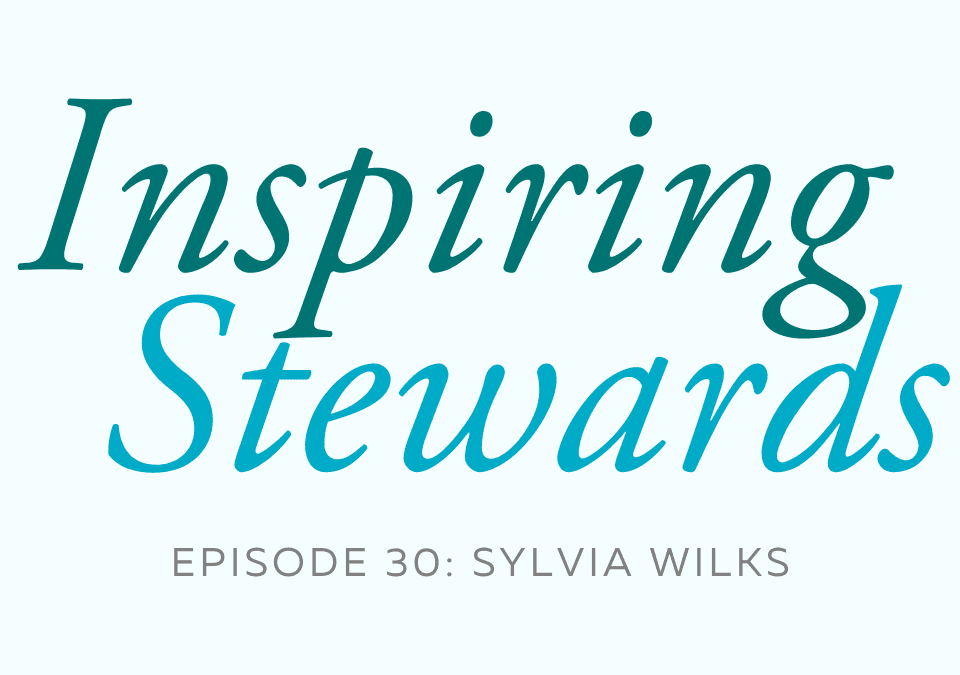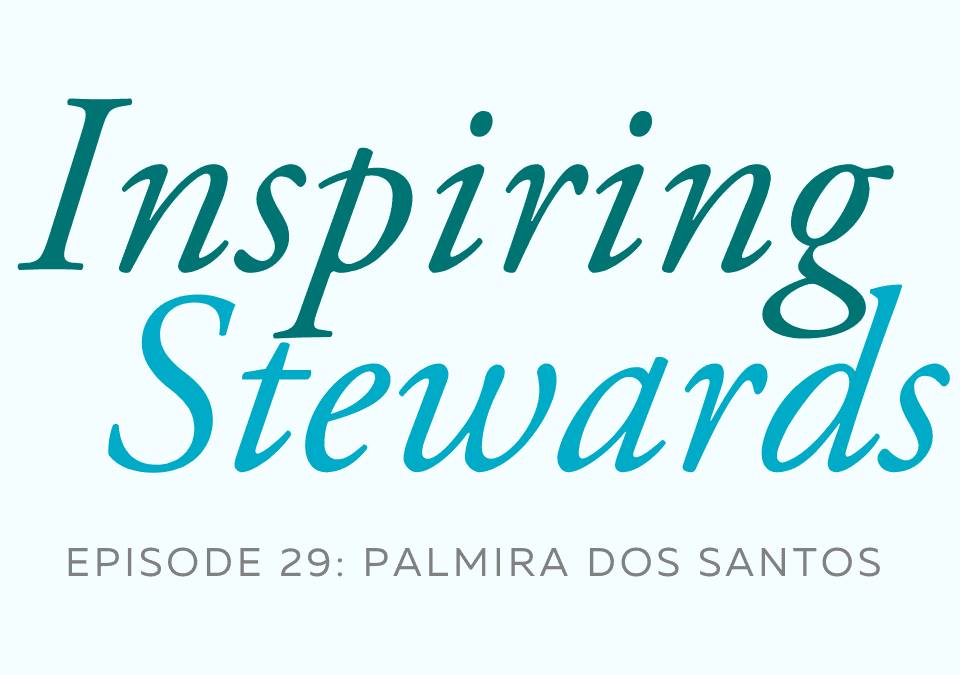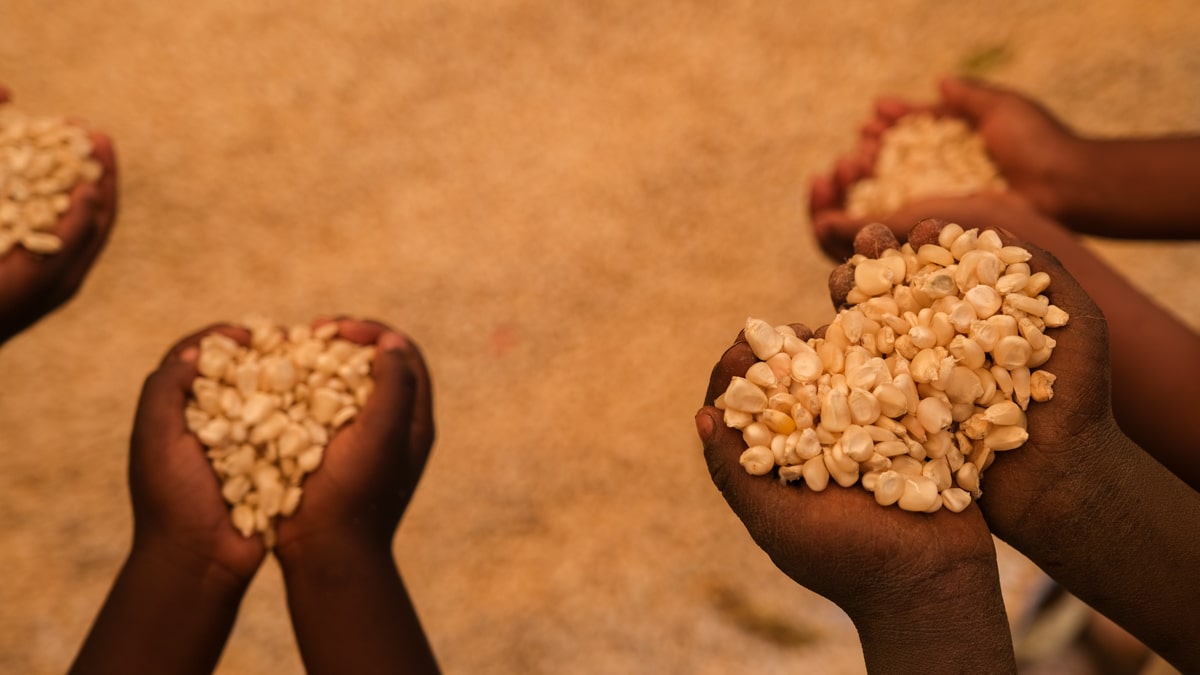


Africa October 2022 Field Report
October 27, 2022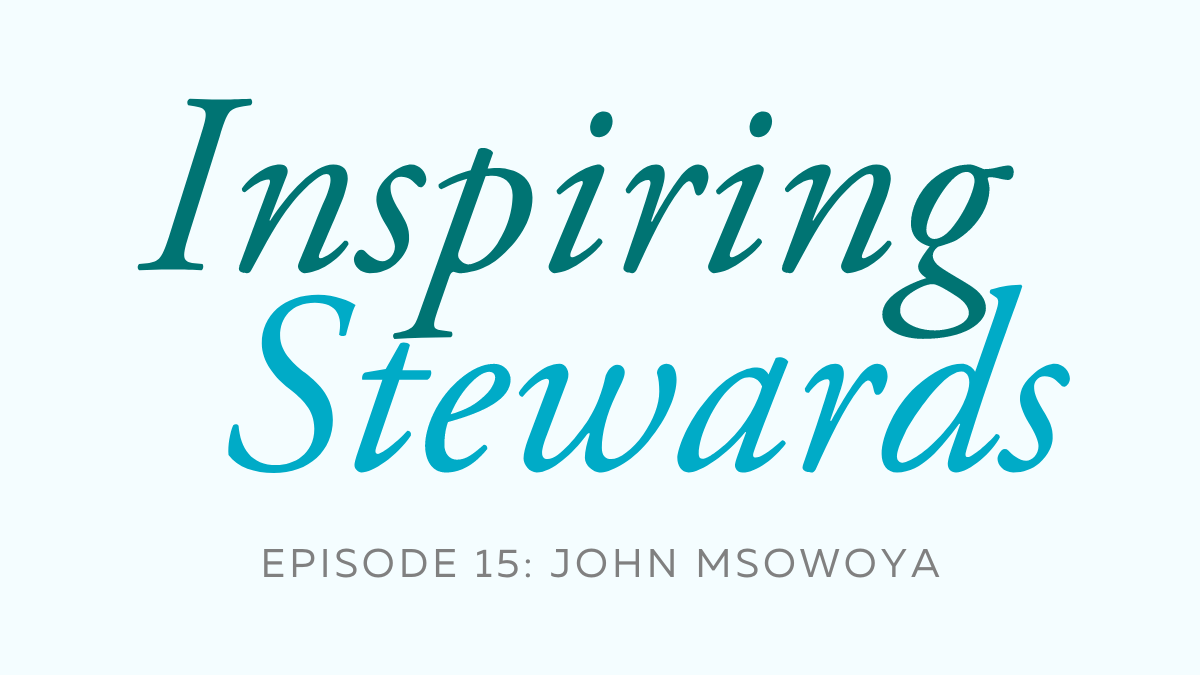


John Msowoya – Changing mindsets from receiving to giving
November 28, 2022Stewarding what God has given for the next generation
ABOUT THIS EPISODE
In the fourteenth episode of Inspiring Stewards, Nathan Jones speaks with Veronica Colondam of Indonesia, who serves on the board of ICCSA (Indonesian Council for Christian Stewardship and Accountability). She shares how her parents had diverse backgrounds and how God led her father to repentance through a remarkable experience. She speaks about her own faith journey which included memorizing many Bible verses, and how her family reflects the beautiful mosaic that is the body of Christ. She talks about why she started YCAB, a foundation that shows God’s love by serving the poor of Indonesia through economic empowerment and educating young people. She celebrates how the gospel has spread online in the pandemic and urges us to be the salt and light of the world by stewarding all we have for the next generation for the glory of God.
We’d love to hear your thoughts, comments, or feedback. To do so, email us at mail@gtp.org.
The music is Concerto a’ 4 Violini No 2 by Telemann played on classical guitar by Jon Sayles. Published by Exzel Music Publishing.
Length: 21:54
TRANSCRIPT
NATHAN JONES
Welcome back to those of you who have journeyed with us through previous episodes. And for those listening in for the first time, we're honored to have you with us. This month, I had the privilege of interviewing Veronica Colondam, founder of the YCAB Foundation and board member of ICCSA, the Indonesian Council for Christian Stewart and Accountability, who share some incredible insights on stewardship with us.
My name is Nathan Jones, and I want to thank you again for joining me on this episode of the Inspiring Stewards podcast.
Well, Veronica, thank you so much again for taking time to be with me today. And let's just jump in. Give us a little bit of your background, your story growing up, where you're from.
VERONICA COLONDAM
I was born in a small city. Well, it's not small. Now, it's the third largest city in Indonesia. I mean, Jakarta being the capital city, anything outside of Jakarta is just smaller. In north of Sumatra, which is close to the tsunami, Aceh, remember? So, near that part of Indonesia. And I grew up there, but I was a year old when my parents brought me back to Jakarta, and I grew up in Jakarta.
NATHAN
Wow. So Christian home? Non-Christian home? How did you come to know the Lord?
VERONICA
Interesting background because my mom came from near the Philippine part of Indonesia, which is Sulawesi. That's on the northern part. And they're all by definition, just Christian. Christian, very traditional, even orthodox kind of Christian, because that was the last…
You understand Indonesia was under Dutch colonialism for 350 years. So, that’s all the Dutch kind of footprint, from that part of Indonesia, which is the last post before they were out of Indonesia completely. Then, we were liberated from the colonial. So that was the whole very concentrated Christian area. So my mom came from there. My dad was born in West Java, definitely a different kind of background. My mom, more, I guess maybe from the race, is more Philippines – Philippines family, tribes. But my dad is Indonesian-Chinese.
And my dad, not only that he was not a believer, he was also very much into Eastern philosophy and meditation and Krishnamurti and all of that until one day… I mean, this is another testimony that I actually wrote in my memoir. I dedicated one chapter because the story of faith from my mom and dad, really at the extreme. My dad was all the way agnostic, didn't even believe in the worldview of there's a divine, divinity base. It's just all yourself – more on the Eastern. And my mom has been super Orthodox Christian, classic Christian.
But then one day, well, this is going to take a bit of time, but I just want to give…
NATHAN
No worries.
VERONICA
I try to simplify the story, but my dad meditated every night. And then at some point, he was taken to a different kind of dimension. This is a little, I know... even for Christians. Even the spectrum of Christian belief in how the Spirit works in your life and how they understand the work of Spirit. So, this is from being very in that one end, swinging into that experience that night.
Apparently, it was around 2 hours, but then he felt like he was taken in the journey to understand the Bible. And God actually appeared to him, making all the crosses with fire. He heard voices and then opened up the Bible with pages, not with the books because he doesn't know the book of Daniel. He wouldn't know what Daniel is. Open page this, this page, that page. And then he was led to repentance that night.
So he woke up my mom in the middle of the night and say, “Hey, I want to be baptized.” And this has never been a conversation, 20 years of marriage. My dad has been very graceful too. He would come to church only on Christmas and Easter. Very respectful and allows my mom to take us kids to go to church every week and then we, I grew up in a Sunday school. I go to Bible camps, you know, because my dad had been very supportive. He will drop us off. And then actually sometimes, in some good Sundays, he will sit down at the church.
But then nothing actually, not in his understanding, but God really appeared to him in that extreme kind of very spiritual realm, and he repented. And then from that point on, he was led to a kind of ministry that we never thought of. He prayed for the sick and they got healed. And then he had this whole amazing story.
So I was quite classic orthodox. I did not grow up in a church with all the spiritual fruits and all that, but then my dad was exposed to that. So I don't know. I found myself right in the middle, respecting both extremes of Christianity, and I just had, I think, a good balance in a way.
NATHAN
How old were you when he had that experience?
VERONICA
So, that was 1981. I was born ‘72. So I was in middle school, just the beginning of middle school. But my own repentance, I was fifth grade. I was in the Bible camp that summer. And I know it's kind of early for anybody to say that, you don't understand a lot, but I felt like there's a certain kind of calling and there's a certain kind of invitation. From that zero to what? I was nine years old. I grew up in church. Of course, I know all the Bible stories, but I guess, I made that decision that day. It's like my own choice kind of thing. I mean, we were coming from orthodox church. We were baptized as a baby, right? But then you need to kind of then do another public sort of like, what is that, acclamation of your faith. I don't know what’s the term used, but then right in the middle of it, I actually made my own decision to be a follower of Christ. And I remember it was actually 1981, yeah, 1981 summer. Oh, 1983.
NATHAN
'83, okay. And then what impact did that then have on your life as you've moved past that season, through that season?
VERONICA
I guess nothing dramatic happened right away, but I guess it's just the way of your thinking, you learn about the Bible a lot more. And I grew up with a family fellowship after my dad's repentance. We have every week our own family altar and family fellowship, then extended from cousins to neighbors. A lot of people actually came every week to our house. So the whole Bible study has been, I guess, my guiding light to my life, all the understanding, all the verses.
I went to Baptist School. So we have to memorize verses. I mean, we hated it at that point of time, but it actually spoke sometimes when you're dealing with this one issue, that issue, and then there's a voice or a reminder of such-and-such a verse that gave me encouragement, gave me the strength. There's a reminder from time to time.
I don't know if you experience that, Nathan, but isn't that that the verses that really stored in your hard drive memory they just pop out every now and then to just give me some clarity, sometimes give me some strength, give me some encouragement. And it's just coming amazingly accurate. The timing is always perfect. That's been my guiding light.
NATHAN
The Spirit draws that out of us at just the right time.
VERONICA
Yeah, I didn't have the kind of experience like my dad that's super into spiritual gifts and all that. But, yeah, I'm quite, I guess in a way, in my own way, I guess maybe in the more normal way you study and how it emerges in your head and you internalize it, you know, the normal kind of...
NATHAN
Well, it's a beautiful picture to see how your mom, she grew up and what that was like for her. For your dad, and where you fall, and to see the mosaic and the beautiful picture of the body of Christ at large.
VERONICA
I like that you used the word mosaic because it's bits and pieces that came out like a weaving, right? Sometimes you don’t know but it's God's grand plan that really happens. And you don't see that until time – there's a time element to it, right? At some point you see, “Oh, that's actually going to be a beautiful picture!” That's how our life is. That God being the Grand Weaver that's weaving our life and then sometimes pains and suffering we don't understand at that point of time.
But we look back, “Oh, that makes sense because He's trying to make me strong. He's trying to make me resilient towards this and that because this is what I'm dealing with. My life is far greater than what I dealt with before.” So all this is just playing a big role in my life, Nathan.
NATHAN
Speaking of which, let's fast forward to today, 2022. What does the Lord have you involved in today?
VERONICA
Well, 23 years ago, actually, 24 years ago or even more, God instilled that sense of purpose, I guess. People, everybody wants to understand why they are born, their sense of existence in this world.
I was having my own 26th birthday. At that point of time, I was already with two young children. It was two and four years old. And it just hit me that night. It was my birthday, I remember. And I was reminded of that part of the Bible, Matthew 25, from, I think, verse 39 and onwards, when Jesus said about the sheep and the goat. If you're doing it to the least of my people, you’re doing it for me. How do we know that you are hungry, when you're thirsty, when you needed help and so on? So I thought at that point of time, at that night, I was like, oh my God, if I die tonight – this is on my birthday, and I'm thinking about death – if I die tonight, what can I tell God have I done in my life?
So from that point on and 18 months later, I set up the foundation. We call it YCAB, Yayasan Cinta Anak Bangsa. In Indonesian, “Yayasan” means foundation. The word “Cinta” means love. And “Anak Bangsa” is the children of nations. So, it's to love the children of nation. So I guess from that point on, my life sort of like thesis is completed because God love me, I love the world, and through YCAB is how I love the world. And that's just the journey it was set up in. The foundation was set up in 1999, 23 years now. It felt like yesterday.
I think we are called, I was called to do something for the least of God's people. So that's where we serve: the low-income, the poor of Indonesia, where we bring empowerment through education and also empowerment through economic means, through the kind of small capital for them to increase their daily income so that they can enable their kids to school. Because we believe that education is the one thing that will accelerate change and transform them to be able to bring them from poverty to maybe aspiring middle class, not yet middle class, but aspiring middle class.
We have to do it both: the intervention in terms of economic empowerment and education for the next generation because we don't want them to stay poor by being loyal to our financial inclusion program. We want to graduate so that their kids will go to higher education. So that's the whole, I guess, ministry that I'm involved in, for specifically Indonesia. And it's been to answer that one question that I asked my 26-year-old self.
NATHAN
That's wonderful. Yeah, I'm sure we could spend a lot of time unpacking the impact that has, but as you have really, I would say, stewarded that calling and that role, it brings me to my next question, which is: this is the Inspiring Stewards podcast. So what role has stewardship played in your life and how you've seen that played out in your work?
VERONICA
Everything that we do is not for ourselves, it's for God's people. So, I guess, that's one. And everything that I own, the capacity, the capability, the God-given talent is something that we have to do to serve His kingdom on earth, that is the least of His people, from where I understand it.
You know, there’s an ad, an advertisement of a famous watch: You never own a Patek Philippe. You're merely taking care for it, for the next generation. So you never own everything that you think belongs to you. You never own it. It's just temporary. You're going to pass it down to the next generation, to the next team, to the next phase of leadership in your organization.
So you have to do the best of your ability to make it strong of course. If you want to scale, you scale up, you scale deep, right? On the impact side, on what you do. The program intervention that you design, it has to mean you have to be the best in the world simply because you're doing it for God. You’re not just doing it as in activities or filling up the extra time you have. It’s not! This is not activities. This is something that you present wholeheartedly.
When you love, you give it all, right? So this whole, I guess, my own understanding of what stewardship is, because even success is not ours. You can't claim the success. You have your team doing it with you. And there's a lot of, like a point of I would call intervention, divine intervention, that the impossible things happened. The impossible became possible, and that it actually contributes to your success. So your success is, of course, it's something that you nurture, but you're a steward of everything that you do. All the time that you have, all the money that you have, you're just stewards. You just have to make the best of it for the glory of God.
NATHAN
That's wonderful. It's such a powerful picture of holding it temporarily to pass on to the next generation, whether it's our own children or the next generation of leadership in an organization that we lead, which is tremendous.
Well, Veronica, how are you seeing God at work? Given that stewardship is managing something for a period of time on His behalf as He is ultimately the owner, how are you seeing God at work in the world around us today whether it's locally, globally?
You were just talking about the fact that you're right now in the US but live in a different part of the world. So you've got a global perspective, but how are you seeing God at work around you?
VERONICA
I think the pandemic is a game-changer. The way we look at the world, it shapes our behavior, right? I hate the pandemic, what it brought, and the cause of untimely death and premature sorrow. I mean, I lost members of my family to COVID too last year.
But this is a time when God actually used online like this, Zoom, anything online for His gospel to be spread at exponential speed. I've seen churches. If you're doing like a weekly, 300 people will come, 500 people will come. But when they did the online church in Indonesia, that particular church, at least they've grown five to six times. One church with 20,000 members, that's the small one. The big one from 20,000, they usually have say, five times service, 100,000 can come, and then they have a million views. So everything just exponentially.
And then you know what, Nathan, what happened? I mean, we come from a country that's predominantly non-Christian. Some of my non-Christian friends actually admitted that they actually love to be at the online church because nobody knows. They don't want any judgment. They are following. They are even church-hopping. And some of my friends who are actually in politics and they need to do public speaking a lot, they love to hear how pastors speak because they actually learn a thing or two. The gospel is spread anyway.
I love that there’s an elegance in that silence. Like, you don't have to appear in church. I mean, all the churches in Indonesia now is back. You know, normal, not offline completely, on-site. But then, they always keep the online because it gives opportunities for the gospel of God to be spread way beyond whatever that anyone can ever imagine. And that's the amazing work that God is doing through the pandemic. He's using the pandemic for the exponential growth of His church.
NATHAN
Wow. That's a tremendous perspective. I know here in the US, a lot of churches are critical of people who are not coming back into the...
VERONICA
Guilty! I’m still on an online congregation.
NATHAN
You bring up a good point in that when we attend online, we don't worry about acting like or putting ourselves out there as somebody that we're not. And it allows us so, if we can, as the global church steward that online presence to see, let the gospel advance in new and creative ways. That's wonderful.
VERONICA
And it speaks to the hearts that you couldn't even reach, you couldn't otherwise reach before. But online enables that. Online really reach out to those non-Christian community for the gospel of God to be spread and to be heard and that's the whole harvest. This is the global harvest in Indonesia at least. I don't know, in the US. Maybe...
NATHAN
Well, the numbers that you mentioned are just phenomenal. The size of a small church being at 20,000 and the million reach of a large church. Praise the Lord that as missions organizations are considering, how do we reach the masses with the gospel: creative opportunities.
Well, Veronica, thank you so much for your time today. What final thoughts, if any, would you leave us with today?
VERONICA
I know people love to ask this at the end of everything. Well, about stewardship, I guess, if we have that awareness that everything, even our time, the money that we have is not ours, it gives a different perspective of life. And it just gives you that understanding that you have to do, you give your best right now for the next generation, and you're doing it for the glory of God. What else? What else we should do right? And we are called to be the salt and light of the world. That's exactly how to be the salt and light of the world.
NATHAN
What a beautiful word. Veronica, thank you so much for your time today.
VERONICA
Thank you, Nathan. Thank you for having me.

